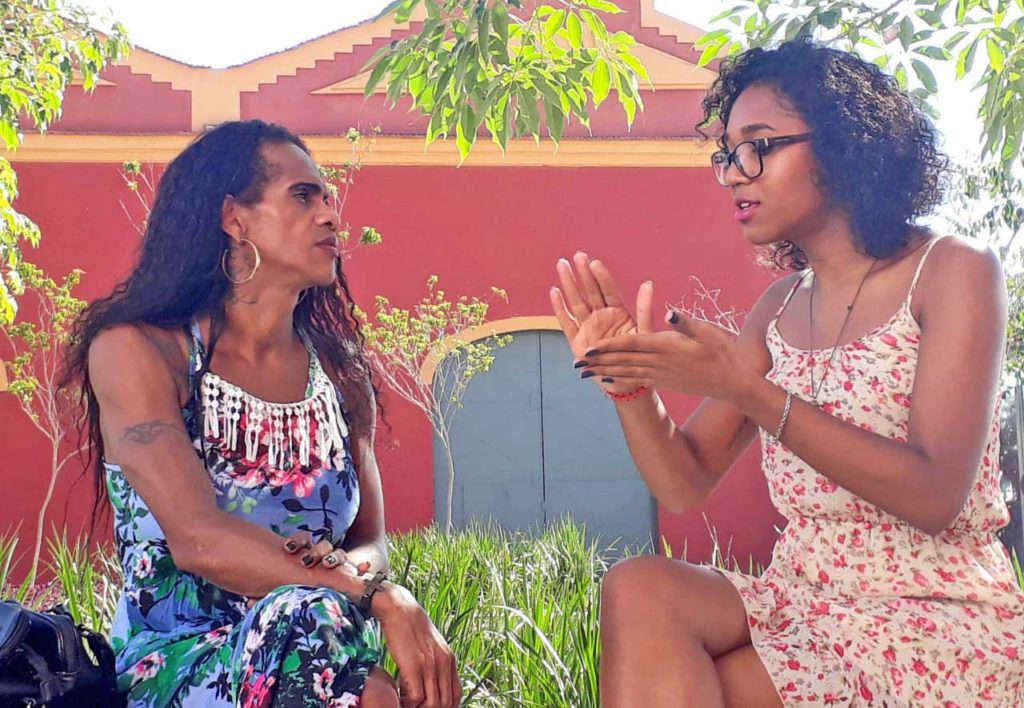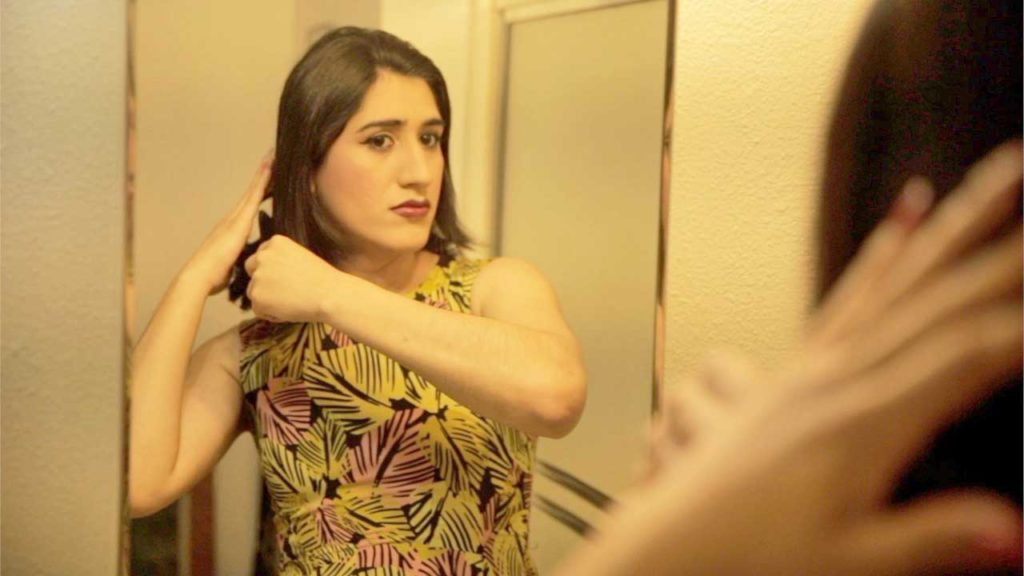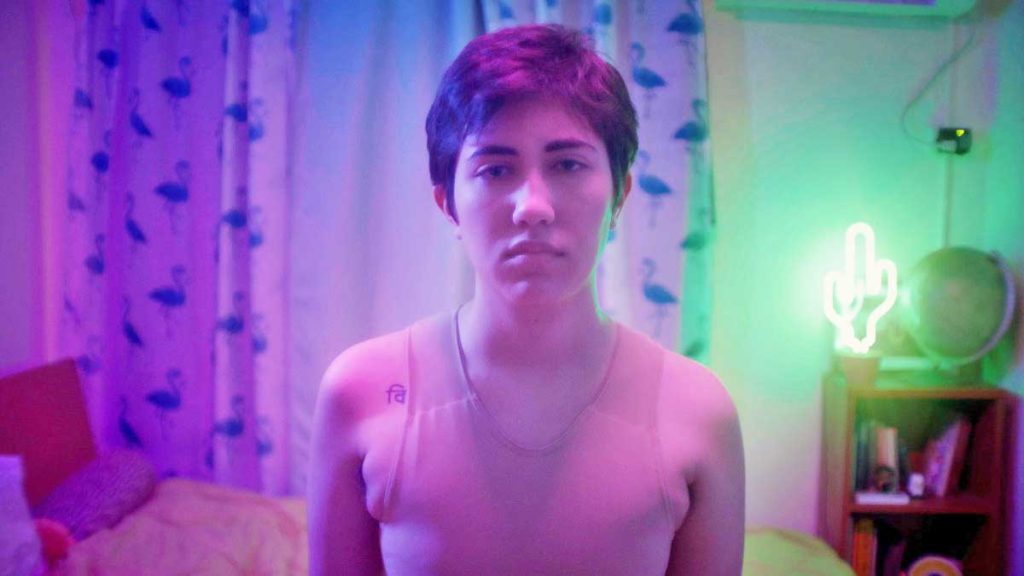Now in its ninth year, the Philadelphia Latino Film Festival (PHLAFF) is hosting a free, virtual film festival online June 4-7. The program includes four queer features and six queer shorts all of which can be accessed through the festival’s website. Viewers can select a title, check in, and log in to access the films. (Note: some titles are geo-blocked for the Philadelphia region and/or the U.S. only).
In a recent phone interview, queer program director Kristal Sotomayor explained the focus on LGBTQ films this year, “We thought it was important in our programming to emphasize the lives and voices of trans people. We chose queer films as the genre for this year’s LOLA awards because we thought it was particularly important to support queer voices — especially Black trans woman voices because of the systemic murder of Black trans women.”
“Queen of Lapa,” which is receiving one of the festival’s LOLA Awards — the prize given to films that are especially well made — is one of two documentary features chronicling trans women of color. This film, directed by Theodore Collatos and Carolina Monnerat, showcases the title character, Luana Muniz, a transgender sex worker in Brazil. Luana manages a hostel for trans youth, and she doles out advice with a mix of caring and sass. She is an engaging raconteur, holding court and confessing her struggles, ambitions, regrets, and pleasures with style and moxie.

In contrast, “Say My Name” is more political as it depicts the efforts of two trans women in Brazil fighting for the right to have their legal documents represent who they are — not who they were. The film opens with Selem heading out to collect her revised birth certificate. She talks about how tired she is of explaining herself and the difference between gay and transgender to almost everyone she encounters. When she picks up her certificate, she is thrilled, even though another process is required to change her gender on the form. Selem’s story is contrasted with the younger Diana, who was inspired to come out as transgender after seeing the model Lea T. Both trans women talk movingly (and separately) about their families and their fears and the difficulties they have being trans. Diana says she does not want to be a sex worker, however, Selem describes her past experiences working the streets. Selem is involved in a lawsuit with a company that forbid her from using the women’s bathroom, while Diana is entering law school. “Say My Name” is a very talky documentary, but its subjects are ingratiating.
“Everybody Changes,” which is also receiving a LOLA Award at the fest, was Panama’s entry for Best International Film at last year’s Academy Awards. This heartwarming family drama opens with Lizzie (trans actress Arantxa de Juan) dressing as a woman, to take her wife Carol (Gaby Gnazzo) out on a date. Lizzie feels more herself as a woman, though assigned male at birth. When she decides she wants to have gender affirmation surgery, the family’s tight-knit dynamic changes. Carol is hurt, as is the couple’s teenage son, Mario (Javier “Jassiel” dos Santos), who refuses to speak to Lizzie; the family’s two youngest children are kept from the whole truth. What’s more, gender affirmation surgery is uncommon in Panama, a situation that prompts Lizzie to have her operation in Bangkok.
“Everybody Changes” admirably shows the different attitudes toward Lizzie’s transition. While the editing and pacing feel a bit rushed, the points made about love, understanding and acceptance come across clearly — especially in scenes featuring Carol and Mario visiting Lizzie’s therapist, Mariana (Gina Faarrup Cochez). Director and co-writer Arturo Montenegro’s well-intentioned film has its heart in the right place, which is why it is endearing.

Four short films also focus on trans lives and experiences. “Before and After Detention,” which is having its World Premiere at the fest, profiles three trans women who crossed into America with difficulty. Director Armando Ibañez captures his subjects talking about the fear of violence and abuse in their homelands, and how these trans women sought asylum, protection and refuge in the United States. However, as they eke out lives in the U.S., they each face issues with transphobia. Still, their resilience comes across in his poignant short.

“La Flaca (The Bony Lady)” is set in Queens, New York, where Arely Vazquez is the leader of the Santa Muerte cult. The film provides a fascinating glimpse into Arely’s world as she puts together a 10-year anniversary celebration. The film, directed by Adriana Barbosa and Thiago Zanato, immerses viewers in aspects of the cult, from a baptism ceremony to worshiping Saint Death. Unfortunately, Arely is troubled by death threats that may upend her event.

Director Judith Corro’s terrific narrative short, “Vuelta al Sol (Birthday Boy),” is an empowering story about Cesar (Anthony Chersia), whose parents (Mariela Aragón and Aquilino Arias) deny his gender, preferring Cesar be — and dress as — Camila, their daughter. On Cesar’s 18th birthday, he takes a stand to be who he is. The film received the LOLA Honorable Mention.
“Cover/Age,” directed by Set Hernandez Rongkilyo, profiles trans activist Héctor Plascencia-Juarez, who is working to secure health care for undocumented and uninsured people in California. The film contrasts the #Health4All activists’ efforts with the testimony of Emma, a 60-year-old Pilipino caregiver, who would benefit from such coverage that is denied to her by the Affordable Care Act.

Rounding out the queer shorts are two narratives, “Pride,” a slight but winning film about Mayra (Jalitza Delgado), whose religious grandmother Amalia (Ermalinda Chavarria) teaches her to speak up — only to get a lesson herself when Mayra’s mother, Raquel (Monica Peña) allows her daughter to attend the Pride parade against Amalia’s wishes.
Another LOLA Award-winning film is the short, “La Amante (The Mistress),” a charming drama about a widow, Maritere (Awilda Sterling), who is concerned when Angela (Maglia Carrasquillo) turns up unexpectedly and uninvited to her husband’s funeral. While her son (Modesto Lacén) suspects the reason the two women are at odds, the truth is, in fact, quite the opposite.
Lastly, another LOLA Award winner (honorable mention) is “Retablo,” an outstanding feature debut by writer and director Alvaro Delgado Aparicio. This 2017 film, which was Peru’s Oscar submission that year, is set in the Andes, where Noé (Amiel Cayo) is an artisan who makes retablos — folk art devotional figures housed in painted wooden story-boxes. Noé’s craftsmanship is exquisite, and he is training his teenage son, Segundo (Junior Bejar) who helps him with his work. However, one afternoon, after Segundo discovers his father’s sexual secret, he becomes withdrawn. Burdened by what he knows, he hopes to find work elsewhere with his neighbor, Mardonio (Mauro Chuchon).
“Retablo” addresses themes of family and tradition, shame and masculinity as this slow-going drama unfolds. The rural landscape setting, the Quechua dialogue and the colorful fabrics and clothing all contribute a strong sense of authenticity and place. But it is the intense exchanges Segundo has with his mother (Magaly Solier), his father and even Mardonio, that show his true character. How Segundo absorbs the reality of his situation is what makes this film so powerful. Aparicio’s drama is as well-crafted as one of Noé’s story-boxes.
For viewing and more information, visit https://www.phlaff.org/home.
